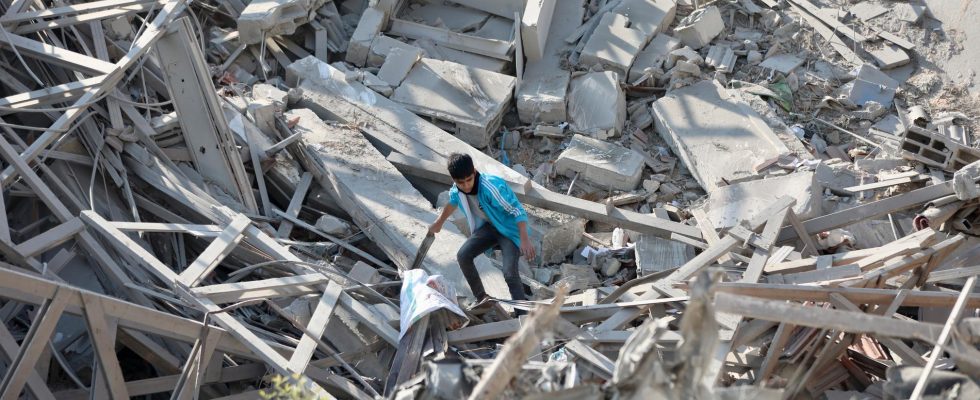unsaveSave
expand-left
full screen
chevron-rightnext
There are hardly any journalists left in Gaza City. Here’s one of AP’s freshest photos, taken on February 10.
1 / 2Photo: Mohammad Hajjar/AP/TT
– We want to live.
The cries for help from the northern Gaza Strip are sounding increasingly desperate since the UN’s food program has given up efforts to distribute food there.
After a break of several weeks, the UN agency WFP tried the other day to resume deliveries of emergency aid in the northern Gaza Strip. But the misery in the area is so brutal that the trucks were met by “complete chaos” – and the UN staff felt compelled to leave again.
“We are shocked by this decision,” replied Hamas, the terrorist-labeled Palestinian movement that formally holds power in the Gaza Strip, according to the AFP news agency.
“It means a death sentence and doom for three quarters of a million people.”
Israel several months ago ordered the civilian population to flee to the south, so that Israeli forces can more easily fight Hamas in the north. But even if most of the Gaza Strip’s roughly two million inhabitants obeyed, large numbers of civilians still remain in the north.
Mixes animal feed
– The situation is worse than anyone can imagine, said the widow Soad Abu Hussain, who together with her five children sought shelter in a school in Jabalia east of central Gaza City, to the AP news agency.
She describes an existence on the verge of starvation: The little flour that is available is mixed with animal feed to be able to bake bread, rotten ingredients are devoured and families eat at most once a day.
– We can’t stand it anymore, says Ahmad, who lives in the wasteland that the city of Gaza has turned into.
– We must have a ceasefire. We want to live.
Call “at risk”
At the same time, the United States is receiving criticism after vetoing a ceasefire proposal in the UN Security Council. Countries such as China, Russia and Saudi Arabia express outrage, but so do Western powers such as France.
US UN Ambassador Linda Thomas-Greenfield called the stalled proposal “wishful thinking and irresponsible”. The US would rather focus on the peace talks that have recently taken place in Paris and Cairo, among others. Thomas-Greenfield said that resolutions at the UN rather put these talks “in jeopardy”.
On Wednesday, Brett McGurk, Middle East envoy from the United States, arrives for negotiations in Egypt. He is then expected to continue to Israel in the hope of a peace settlement.
